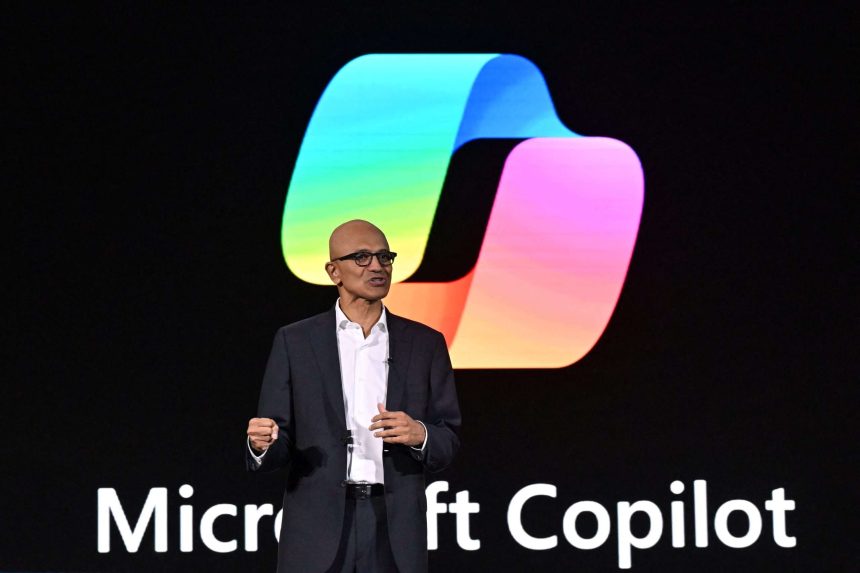Microsoft has confirmed it will lay off as many as 9,000 employees in the latest round of job cuts to hit the global tech giant. The reductions, amounting to around 4% of Microsoft’s 228,000-strong workforce, mark the fourth wave of layoffs announced in 2025 alone.
A company spokesperson described the development as a “necessary” action to “position the company for success”.
“We continue to implement organisational changes necessary to best position the company for success in a dynamic marketplace.”
Though Microsoft did not publicly specify all affected departments, reports indicate the cuts have struck deeply across gaming and software divisions — including studios behind major video game franchises.
Founded in 1975 by Bill Gates and Paul Allen, Microsoft has grown into one of the world’s largest technology companies, offering software, hardware, and cloud services worldwide.
The company’s aggressive investment in AI places it at the centre of debates about the future of work, ethics in technology, and global innovation.
Microsoft’s restructuring comes amid a seismic pivot toward artificial intelligence (AI). The company has announced plans to invest $80 billion in new data centres to power AI model training, signaling how central the technology has become to its strategy.
Last year, Microsoft recruited British AI pioneer Mustafa Suleyman to head its newly formed AI division. The tech giant is also one of the largest investors in OpenAI, the creator of ChatGPT.
A senior Microsoft executive recently told the press:
“The next half century will fundamentally be defined by artificial intelligence, changing the way we work and interact with one another.”
Yet even as Microsoft races to build AI capabilities, it has reportedly struggled to convince business customers to adopt its Copilot AI assistant — many office users still prefer the original ChatGPT experience instead.
What’s at Stake for Workers and Startups?
Layoffs are hitting not just traditional tech roles but also creative industries like gaming. Studios affected include The Initiative — working on a long-awaited reboot of the Perfect Dark series — which will reportedly be shut down. Other hits include staff reductions at Forza Motorsport’s Turn 10 Studios and Elder Scrolls Online’s ZeniMax Online Studios.
Matt Firor, studio director of ZeniMax Online, announced he would step down in July after more than 18 years with the company.
“While I won’t be working on the game anymore, I will be cheering you on and adding to the thousands of hours I’ve already spent in-game,” Firor posted on social media.
Even independent developers are feeling the ripple effect. Ireland-based Romero Games Ltd, co-founded by Doom creator John Romero, announced layoffs after losing funding from its publishing partner.
“These people are the best I’ve ever worked with,” Romero wrote on X (formerly Twitter), “and I’m sorry to say that our game and our studio were also affected.”
Leadership and Strategic Positioning
Microsoft’s shift to AI reflects a wider tech industry trend — pouring billions into new AI research and infrastructure while streamlining traditional business lines. In Washington State alone, more than 800 of the eliminated roles are in Microsoft hubs like Redmond and Bellevue.
This consolidation contrasts with fierce competition for top AI talent. Meta, for example, is reportedly offering signing bonuses exceeding $100 million to lure AI researchers away from rivals like OpenAI and Microsoft. Amazon’s Andy Jassy recently told investors he expects AI will eventually replace some human jobs across the company.
Microsoft’s recent moves signal an acceleration of AI-driven business models — but also the potential for continued turbulence in the tech labour market. As startups and legacy giants alike rush to stake claims in AI, traditional sectors such as gaming and software development are facing uncertainty.
Why This Matters for Nigeria and African Startups
For African tech ecosystems — including Nigeria’s burgeoning startup scene — Microsoft’s shifts are a warning sign. Many local startups rely on partnerships, tools, and cloud infrastructure from global tech giants like Microsoft. A leaner, AI-focused Microsoft might mean fewer traditional support channels for smaller companies outside core AI development.
Moreover, these layoffs highlight how even profitable tech firms are refocusing on AI, sometimes at the cost of creative industries. Startups betting on gaming, media, and entertainment should brace for fewer opportunities if big players withdraw investment or shutter projects.
Talking Points
Nigeria, South Africa, and Kenya have emerging game-development scenes. But Microsoft’s layoffs show how vulnerable gaming is to corporate reshuffles. If global giants can kill beloved franchises overnight, what happens to African studios counting on global publishing partnerships?
There’s truth in Microsoft’s claim that AI will shape the future. But who benefits? If African startups can’t access advanced AI tools affordably, we risk a digital divide even bigger than the one we’re trying to close today.
These cuts aren’t just about technology. They’re about power. Microsoft’s refocus is reshaping who gets to participate in the digital economy. It’s time African policymakers and business leaders asked tough questions: How do we protect jobs, creativity, and sovereignty in an AI-dominated world?





